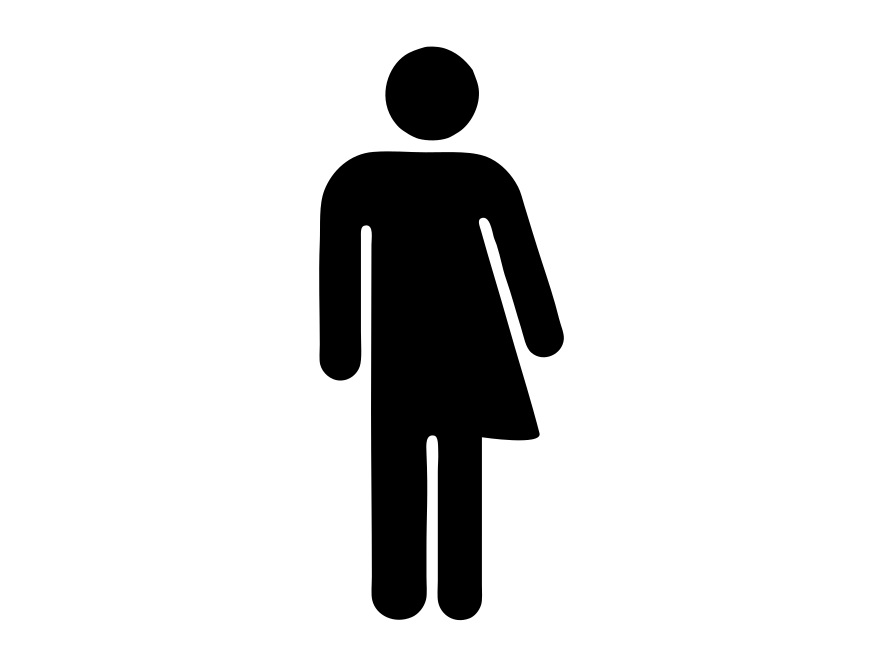This post is also available in Dutch .
Lots of languages have been scrutinized for being sexist or not gender-inclusive, with some people even calling for radical changes. But is it possible to change a language?
My first lesson in sexism came at the age of 10 in French class. We were learning about personal pronouns, those grammatical words we use to refer to people (e.g., “he” = “il,” “she” = “elle”). As our teacher was explaining, unlike English, the third-person plural in French is gender-specific: “they” (masculine) = “ils” and “they” (feminine) = “elles”. “But what if you have a mixed group?” someone asked cheekily. The answer: As soon as there’s even just one male in the mix, you have to use “ils.” We were dumbfounded, but eventually we accepted it. How can you question it? It’s not like you can change language… can you?
Labile languages
Actually, it is possible to change language. The Swedes, unsatisfied with the dichotomy of “han” (he) and “hon” (she), invented the gender-neutral “hen.” This is practical for instances where the gender is unknown or irrelevant — instead of using the masculine generic “he” — but also for people who don’t identify with “he” or “she.” An equivalent in English is “the singular they.”
A more extreme case of language change is taking place in Spanish-speaking countries. Spanish, along with many other languages such as French, has grammatical gender, where every noun has a gender, in this case: masculine or feminine. What’s more, each accompanying determiner (a, the) and adjective (small, tall) has to agree with that gender, which is usually marked with ‘o’ (masculine) or ‘a’ (feminine). Take the sentence “The broken chair was repaired.” Chair (silla) is feminine so all the words referring to it take the feminine form: “La silla rota fue reparada.”
The problem, again, comes when you’re talking about a group of people or someone who doesn’t identify with one gender. For example, “We’re all tired.” for a mixed group is “Todos estamos cansados.” For these cases, gender-neutral proponents advocate the gender-neutral ‘e’, yielding: “Todes estamos cansades.”
Biased language
This so-called inclusive language would mean a substantial change for Spanish and accordingly is meeting a lot of resistance, including from the Real Academia Española, the authority on the Spanish language. Among their arguments, opponents claim that those are just the rules the language was made with and/or they’re inoffensive. But research suggests that gendered language affects our perception. This has been shown, for example, by studies on languages such as Dutch and German where role nouns (e.g., job titles), are gender-specific (e.g., in German, male teachers = “Lehrer,” female teachers = “Lehrerin”) and mixed-gender groups are specified by the masculine generic form. They’ve found that even if gender-neutrality is intended, the masculine form is often interpreted. There’s also evidence that using gendered language in job advertisements can bias people’s perception of the position and their suitability for it. This suggests that gendered language might actually be helping to perpetuate stereotypical gender roles. And that’s the point: language, in general, can perpetuate (old) ways of thinking.
New ideas call for new words
In fact, a good example of how language reflects the thinking of a time long-past is gender-specific job titles in English such as “policeman” or “stewardess.” The gender-neutral variants “police officer” and “flight attendant” have become standard use as our ideas about professions change.
The thing is, you can’t separate language and thought; they’re interconnected. And our way of thinking is constantly changing, so why shouldn’t language change, too? Of course, at first it might feel weird, but after a while we will get used to it, just as my classmates and I got used to referring to groups with females in them with “hes” in French.
This blog was written by Monica Wagner.
To find out more about gender-neutral pronouns, listen to this Lingthusiasm podcast (in English): https://lingthusiasm.com/post/154520062361/lingthusiasm-episode-2-pronouns-little-words.
Featured image by Don clark atlanta via WikiMedia Commons (CC BY-SA 4.0).
